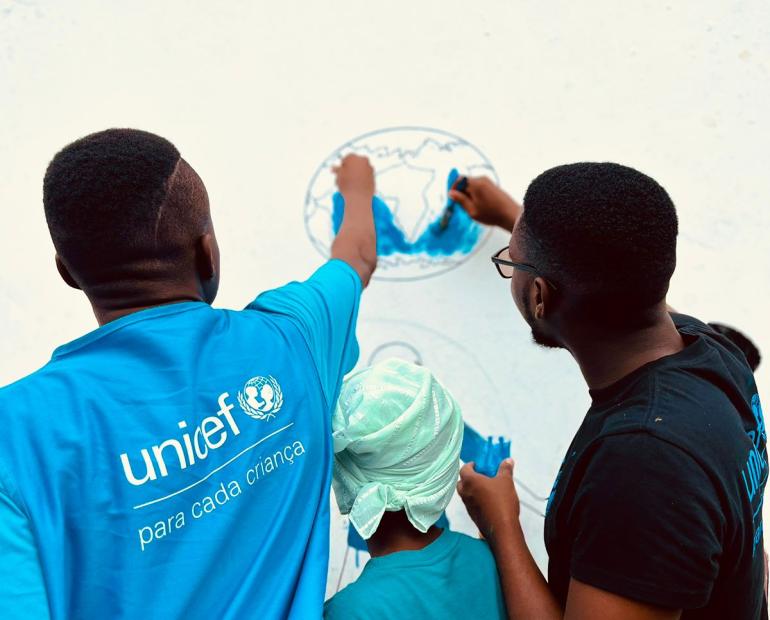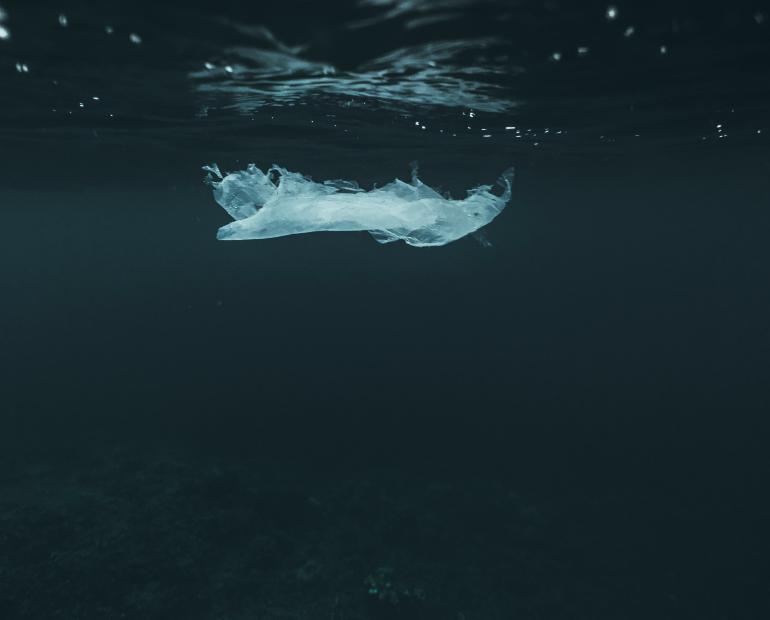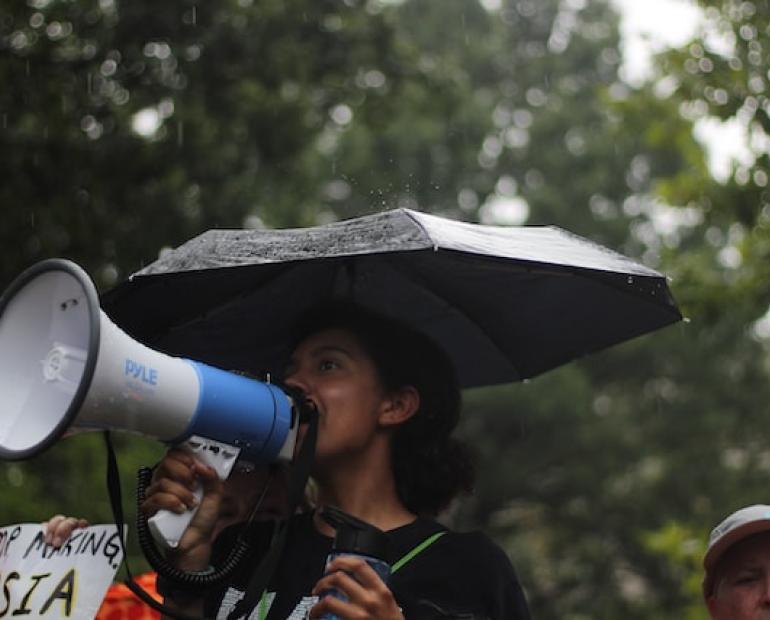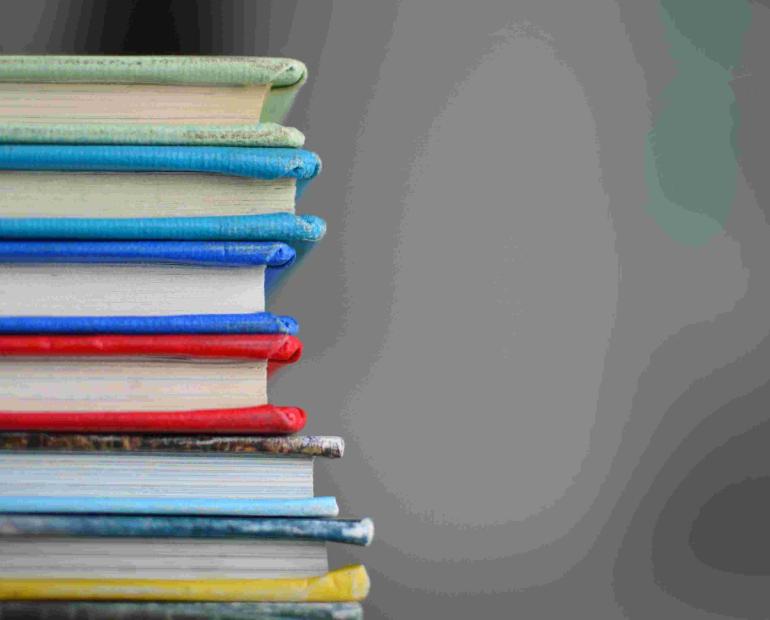
My name is Lucy Meyer and I was born with Cerebral Palsy. I did not receive oxygen to my brain for five minutes at birth and doctors told my parents I would never sit up or swallow. By the time I was two, I was walking on my own – the doctors were wrong!
I graduated from high school in June and I am taking a gap year to spread the message of the importance of acceptance and inclusion to people all over the world as the Spokesperson for the Special Olympics—UNICEF USA Partnership. I usually talk about including all kids with disabilities, but today, for International Day of the Girl, I want to focus my message on why it’s important to include girls with disabilities.
I am very lucky because I got to go to school and thankfully I was never bullied or treated badly. For many others, this is not the case. In many countries around the world, girls are often kept from going to school for a variety of reasons. Girls with disabilities are even less likely to receive an education than girls without disabilities. According to USAID, “While the overall literacy rate for persons with disabilities is 3 percent, UNESCO estimates that it is just 1 percent for women and girls with disabilities.” This makes me sad because people with disabilities and girls deserve to learn.
As the Spokesperson for the Special Olympics – UNICEF USA Partnership, I traveled to Bosnia and learned that 40% of parents in the country would not want their children to attend school with a classmate who has a disability. Parents should not be afraid to have kids with and without disabilities in the same class. At my schools, kids with and without disabilities, boys and girls, always took care of each other and learned from each other. I believe everyone should have the opportunity to experience an inclusive education, like I have had.

School isn’t the only challenge for girls with disabilities. Day to day things can be a little harder for people with disabilities – like getting dressed, taking a shower or going to the bathroom. Unlike boys with disabilities, girls with disabilities have to learn how to handle menstruation. I call this time of the month my “P.” In many places around the world girls with and without disabilities have to learn how to take care of themselves during their “P” and a lot of times there aren’t sanitary bathrooms or resources.
UNICEF is doing a lot of work to help girls with and without disabilities with their sexual and reproductive health and rights. Girls are often victims of gender-based discrimination and violence and the situation is even worse for girls with disabilities. UNICEF is helping with the 2030 Agenda for Sustainable Development which, “sets targets for state action to eliminate violence against all girls and women, including those with disabilities, and to ensure access to Sexual Reproductive Health services and education for all.” I believe that all girls with disabilities deserve to feel safe and have access to the things they need to be healthy.
On International Day of the Girl and every day, I hope we all remember how important it is to include girls with disabilities and do everything we can to make the world a better place for all kids – with and without disabilities, girls and boys – all kids.
To learn more about my work with Special Olympics and UNICEF helping kids with and without disabilities or if you want me to come speak at an event, please visit my website – www.teamlucymeyer.org.






